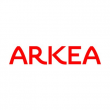East Africa Exchange opens in Rwanda
The newly created East Africa Exchange, currently taking its first steps in Rwanda, is part of a regional integration project between Burundi, Kenya, Tanzania and Uganda that aims to boost liquidity and provide a commodities market for 130 million people across the region.
EAX Rwanda is the first part of the regional exchange, which will focus initially on establishing an auction facility and spot trading for agriculture and non-agricultural commodities. Once that is done, it will work on developing futures trading across East Africa between the five countries, which are all members of regional government association the East Africa Community.
The project’s goals include reducing market barriers to trading, as well as generating a transparent regional economy that can help provide financing to farmers and traders. The investors in the exchange are Berggruen Holdings, which is part of Germany’s Nicolas Berggruen Charitable Trust, together with African investment company Heirs Holdings, 50 Ventures and Rwandan technology and engineering company Ngali Holdings.
Nasdaq OMX will provide the trading technology for the new exchange, using its X-stream trading and clearing platforms. Meanwhile, Berggruen Holdings, Heirs Holdings and 50 Ventures have partnered to form Africa Exchange Holdings, with the aim of developing a network of commodity exchanges in Africa, starting in Rwanda, to boost trade and help ensure higher incomes for the rural poor.
“A transparent, modern exchange will make investment much more likely,” said Nicolas Berggruen, founder and president at Berggruen Holdings. “Agriculture is key to Africa’s prosperity, and so aiding the flow of information and finance within the agricultural sector will be especially helpful.”
Investment in African infrastructure has brought some improvements in recent years, including projects currently underway to build high-bandwidth fibre cables running the length of the continent along both coasts, together with new highways to connect different regions. Last November, Bob Blower, head of cash and trade at South Africa-based Standard Bank pointed out that in less than a generation Africa has gone from having three democracies to having 23, and observed that there is a political will among those governments to forge alliances and build trade.
However, the emergence of megacities such as Cairo and Lagos in some African countries and the related growth of urban corridors – sprawling conurbations that spread over 600 kilometres – raises problems of food. Lagos, for instance, has grown so rapidly that its actual population is unknown, with official estimates varying between 20 and 29 million.
“The East Africa Exchange fits well within our vision to transform the lives of all Rwandans,” said John Rwangombwa, government minister of finance and economic planning. “This partnership is a welcomed opportunity to strengthen the linkages between producers and the market and increase access to information vital for price discovery. We look forward to working with the investors of the East Africa Exchange to increase the income of producers and improve their lives.”
The Nasdaq-built trading technology will cover trading and clearing of equities and derivatives, and is due to roll out during the third quarter of 2013.












































